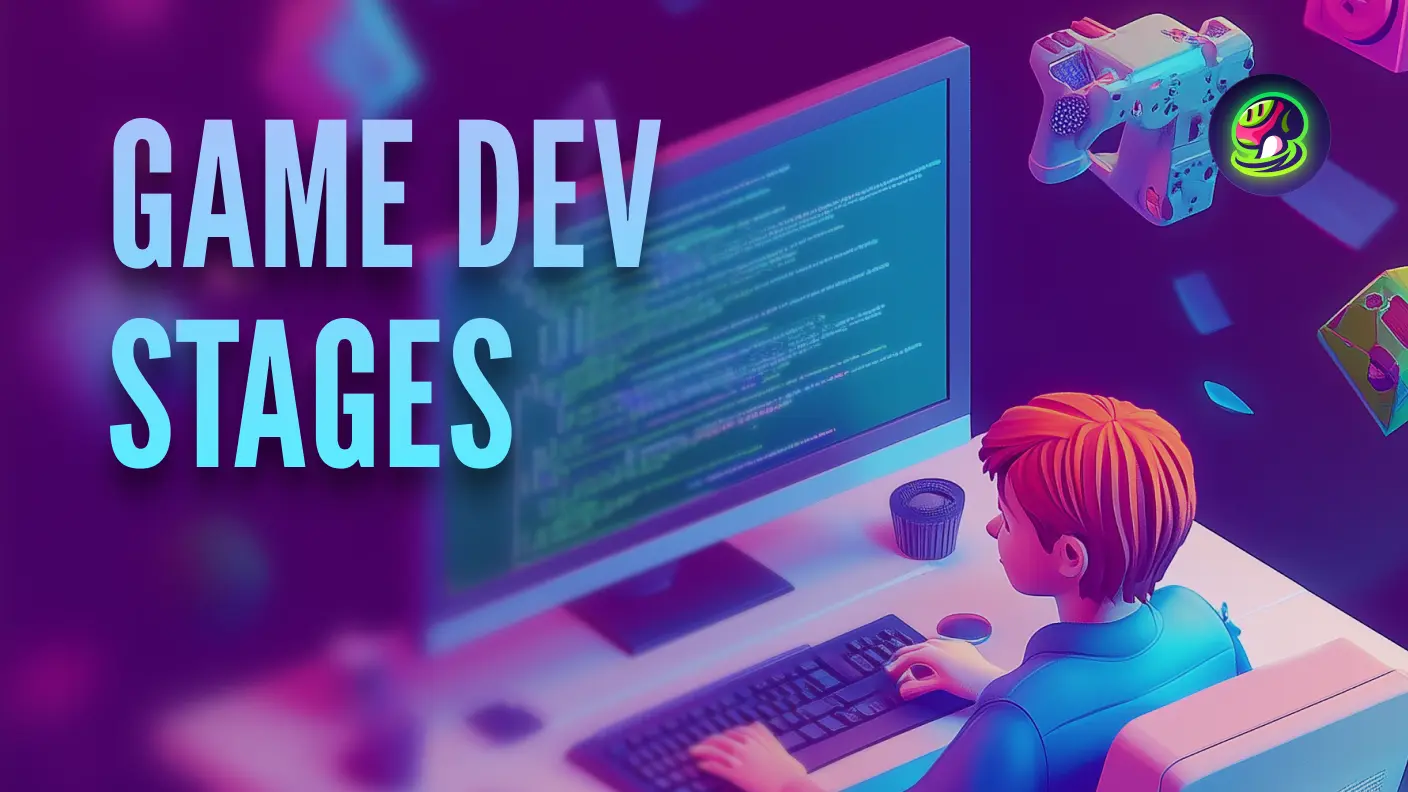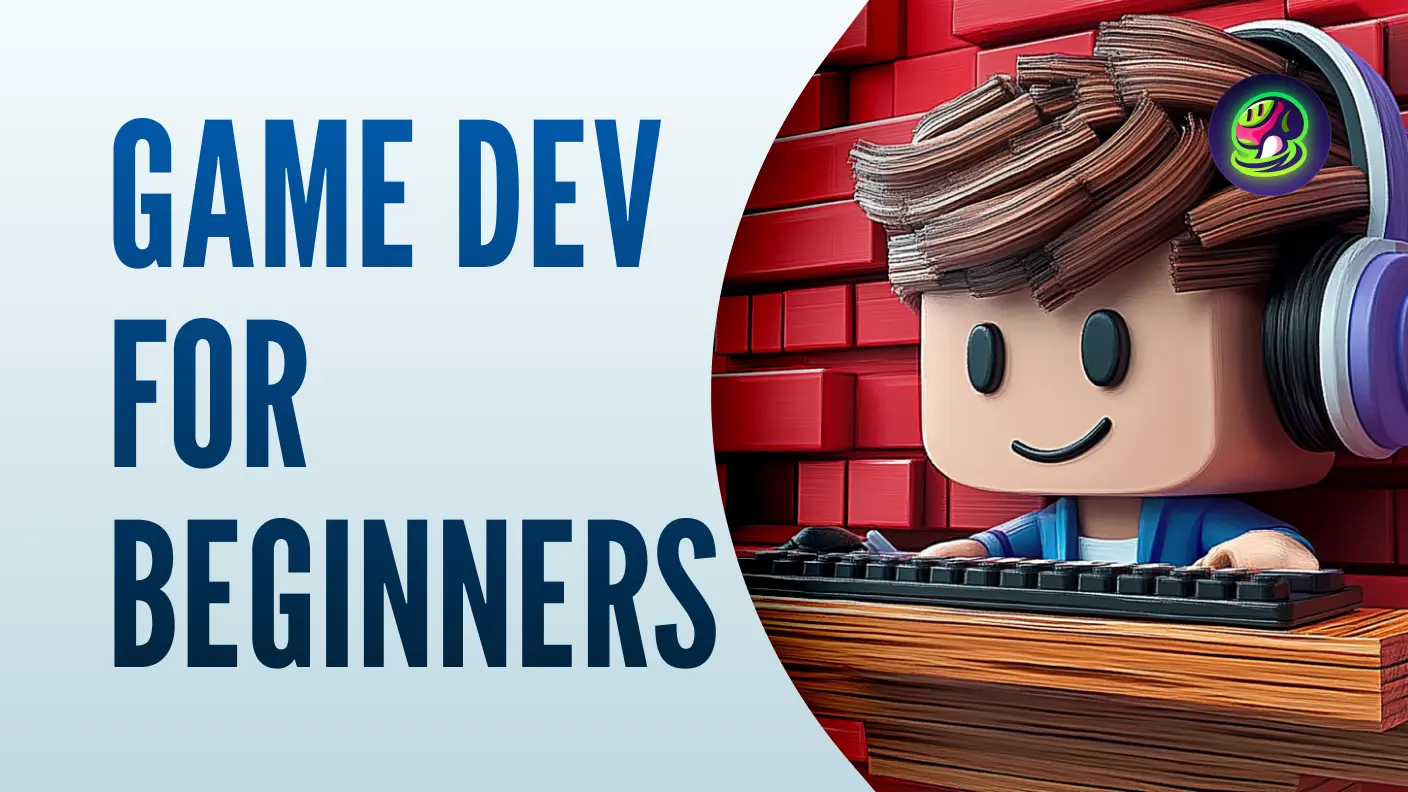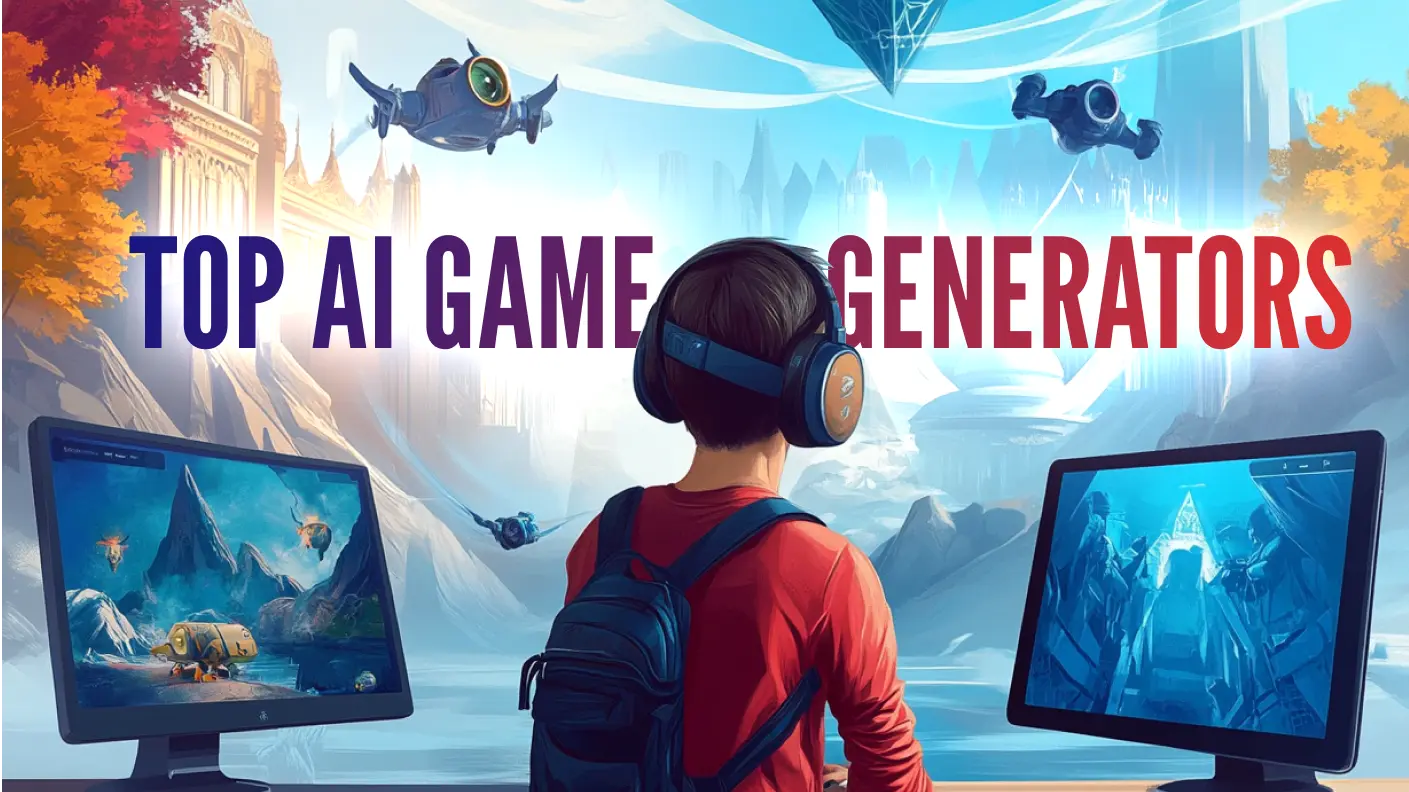Try Out Game Development and Build your Own Game in 2025
Starting your journey into game development in 2025 promises an exciting blend of technology and creativity. As the gaming industry continues to evolve, a myriad of opportunities await those eager to craft immersive experiences. Understanding the landscape and preparing with the right skills and tools is essential to thrive in this dynamic field.
Game development is an intricate process that involves various stages, from initial concept to final release. Each stage requires unique skills and contributions from programmers, artists, designers, and sound engineers. Embracing this diversity in roles allows you to find your niche and excel in your chosen area.
Whether you're a complete beginner or looking to enhance your existing skills, embarking on this journey requires a strategic approach. By focusing on essential skills, exploring suitable tools, and engaging with the community, you can build a solid foundation for a successful career in game development.
What is Game Development?
![]()
Game development is the creation of video games, encompassing a wide array of tasks including design, programming, sound, and art. It's a multidisciplinary effort that brings together diverse talents to create interactive experiences. The process begins with concept development, where ideas are refined into feasible projects. This stage often involves brainstorming sessions to establish the core mechanics, storylines, and aesthetics.
Following concept development, the programming phase translates ideas into code. This step is crucial, as it involves creating the underlying systems that define how the game functions. Programmers work to build the game's logic, ensuring that all elements interact seamlessly to deliver a cohesive experience. At the same time, artists and sound designers contribute by crafting the visual and auditory elements that bring the game world to life.
Art creation and sound design are integral to game development, providing the sensory components that engage players. Artists use a combination of 2D and 3D tools to design characters, environments, and animations. Sound designers add depth through audio effects and music, enhancing the emotional and immersive aspects of the game. Together, these elements culminate in the final phase: release. This involves testing, debugging, and polishing the game to ensure it meets quality standards before reaching players.
Frequently Asked Questions of Game Development Beginners
1. What Skills Do I Need to Get Into Game Development?
![]()
Embarking on a career in game development requires a diverse set of abilities that blend creativity with technical proficiency. Coding forms the backbone of this field; familiarizing yourself with languages such as Java, Lua, and HTML is crucial for developing interactive and dynamic game elements.
In addition to technical skills, fostering creativity is vital for innovative storytelling and design. Strong analytical and collaborative abilities also enhance your capacity to address and solve complex development challenges, ensuring a cohesive and engaging game experience.
2. What Are the Best Tools or Software for Beginner Game Developers?
![]()
For those new to game development, selecting the right tools can significantly streamline the learning process. Tools like Phaser and Construct 3 are excellent starting points, offering simplicity and ease of use for beginners. Phaser, for instance, is a JavaScript framework that supports the creation of 2D games, perfect for web-based projects. Construct 3 provides a visual interface that allows developers to create games without extensive coding knowledge. These tools, along with comprehensive documentation and community support, enable newcomers to experiment and develop their skills effectively.
Game development also requires visually appealing assets to bring your ideas to life. For beginners, Meshy AI is an invaluable resource, offering the ability to generate free 3D models that can serve as game assets. Its user-friendly interface allows you to create detailed models based on text descriptions, making it perfect for developers with limited design experience.
Platforms like Unity Asset Store, TurboSquid, and OpenGameArt also provide vast libraries of ready-made assets, including characters, textures, and environments, which can be easily integrated into your projects. Using these resources saves time and enhances your game's visual appeal, enabling you to focus more on coding and gameplay mechanics.
3. How Can I Start Learning Game Development with No Experience?
For beginners without prior experience, a structured approach to learning is essential. Online platforms offer a plethora of courses that cover everything from basic game mechanics to advanced programming techniques. These courses often include hands-on projects, providing practical experience that translates theoretical knowledge into skillful execution. There are also various forums and websites that allow you to focus on specific areas of interest, facilitating a deeper understanding of the development process and enhancing your proficiency.
4. Do I Need a Degree to Become a Game Developer?
![]()
While a degree can provide a comprehensive foundation in game development, it is not an absolute requirement for success in the field. Many developers build successful careers through self-directed learning and practical experience, leveraging online resources and community engagement. A degree in fields such as computer science or software engineering can offer structured learning and networking opportunities, which can be advantageous.
5. What Are Career Opportunities in Game Development?
The game development industry offers a multitude of career paths catering to various interests and expertise. Whether you're drawn to the narrative aspects of game design or the technical challenges of programming, there's a role to suit your strengths.
How to Start Your Game Development Journey
![]()
Initiating your path in game development starts with grasping its core elements: design, mechanics, and narrative structure.
Design acts as the skeleton of a game, transforming creative concepts into tangible plans. It covers aspects such as visual styling and user interface, ensuring seamless and engaging interactions. Mechanics establish the framework within which gameplay occurs, including movement physics, interaction rules, and the calibration of difficulty and rewards. Narrative structure binds these elements, crafting a storyline that engages players and propels them through the game environment.
In delving into these core areas, determine which industry role aligns with your skills and passions. The field of game development encompasses a variety of positions, each demanding unique talents and perspectives. Those with a knack for resolving complex puzzles and coding may gravitate towards programming. Individuals with a flair for visual creativity can thrive in roles focusing on graphics and art design. Meanwhile, those passionate about storytelling and dialogue might pursue narrative design.
To gain a comprehensive understanding, immerse yourself in diverse facets of game development. This broad exploration not only clarifies your strengths but also expands your awareness of how different roles contribute to the overall creation process. Engage in workshops, online courses, or community forums to gather insights and firsthand experience. These activities will provide a deeper understanding of industry workflows and the competencies needed to excel in your preferred area.
Step 1: Acquire Essential Skills
![]()
Initiating your game development journey necessitates a solid grasp of several core competencies. Chief among these is the ability to code, with a focus on languages like Python and JavaScript. These languages offer versatility and ease of learning, making them ideal for beginners looking to build interactive gameplay elements. Mastering these programming languages allows developers to create efficient algorithms and manage game logic effectively.
A strong analytical mindset is also important in enhancing your capacity for creative problem-solving. This involves understanding algorithms and data structures, which are vital for developing responsive and engaging game environments. Analytical skills empower developers to optimize performance and troubleshoot challenges, ensuring that gameplay remains fluid and immersive. Acquiring these skills builds a foundation for tackling complex game development tasks with confidence.
Cultivating ability of visual storytelling and interactive design principles is equally essential. These principles guide the creation of intuitive user interfaces and compelling narratives, which benefit player engagement. By exploring different design methodologies and experimenting with prototyping, aspiring developers can refine their approach to creating immersive game worlds. This knowledge enables developers to craft experiences that captivate players and encourage exploration, elevating the quality of the games they produce.
Step 2: Choose the Right Tools and Software
The selection of the right tools and software is critical for establishing a strong foundation in game development. Game engines are at the heart of this process, with platforms like Unity and Unreal Engine offering comprehensive solutions for creating both simple and complex games.
Unity is particularly favored for its flexibility and support for both 2D and 3D projects, providing a wealth of resources and a supportive community. Unreal Engine, known for its cutting-edge graphics capabilities, is ideal for developers aiming to produce visually impressive titles. Mastering these engines can streamline the development workflow, enabling a focus on creativity and gameplay design.
Beyond game engines, AI-enhanced tools are revolutionizing the productivity and creativity of indie developers. These tools automate routine tasks such as asset generation and character rigging, allowing developers to dedicate more time to refining game mechanics and storytelling.
Utilising Cutting-Edge Meshy AI for Free Game Assets
Game developers often face challenges in sourcing high-quality assets, especially when operating on tight budgets or timelines. This is where Meshy AI emerges as a game-changing solution. Recognized by a16z, one of the top venture capital firms in the U.S., as the best 3D AI tool among game developers, Meshy AI offers unparalleled ease and efficiency in generating game assets.
![]()
Key Features of Meshy AI for Game Developers:
- AI-Powered Asset Generation: Meshy AI allows developers to create intricate 3D models simply by providing text descriptions or reference images. This feature is particularly beneficial for indie developers who may lack design expertise or the resources to hire professional artists.
- Free Access to Quality Models: Unlike many asset platforms, Meshy AI offers free access to its tools, making it an invaluable resource for developers at all stages of their careers.
- Time-Saving and Intuitive: The platform's intuitive interface ensures that even beginners can produce high-quality game assets quickly, reducing production time and enabling a focus on gameplay and mechanics.
- Wide Compatibility: Meshy AI’s output is optimized for seamless integration with popular game engines like Unity and Unreal Engine, ensuring a smooth workflow for developers.
By leveraging Meshy AI, developers can transform their creative visions into reality without the logistical hurdles of traditional asset creation. Whether you're crafting characters, environments, or props, Meshy AI empowers you to produce visually stunning assets that elevate your game's aesthetic appeal.
When combined with other tools like Unity Asset Store, TurboSquid, or OpenGameArt, Meshy AI becomes part of a robust toolkit that democratizes game development, making professional-quality assets accessible to all.
Step 3: Learn Through Online Courses and Tutorials
![]()
Participating in online courses provides a systematic approach to mastering the essential concepts of game development. These courses often delve into game engines, programming languages, and artistic techniques, catering to varying levels of expertise. They include practical exercises that mimic industry scenarios, enabling you to translate theoretical understanding into actionable skills.
Tutorials play a crucial role in developing specialized skills and understanding complex techniques within game development. They often address specific challenges and provide detailed instructions for overcoming them. Whether you're aiming to refine animation techniques or implement sophisticated AI behaviors, tutorials offer precise guidance and solutions. Resources such as community forums and educational websites host extensive tutorial content, supporting both novices and experienced developers in enhancing their technical capabilities.
Step 4: Build a Portfolio with Personal Projects
![]()
Delving into personal game projects is crucial for highlighting your skills and creativity in game development. These projects provide a platform to apply knowledge gained from your studies, turning theoretical concepts into practical experiences. Initiating with smaller projects enables you to explore game mechanics and design principles on a manageable scale, allowing for rapid iteration and learning from each attempt. This approach ensures you build confidence without the complexity of larger projects.
Personal projects speak volumes about your creative and technical abilities, offering concrete evidence of your skills. They allow you to delve into various genres and styles, showcasing your adaptability and innovative spirit. Whether developing a strategic puzzle game or a story-rich adventure, each project enhances your understanding of diverse game development elements. This journey not only broadens your expertise but also adds distinctive creations to your portfolio, enhancing its appeal to future employers and collaborators.
A thoughtfully assembled portfolio is vital for making a mark in the competitive game development sector. Displaying a range of projects emphasizes your comprehensive abilities and readiness to handle different challenges. For every project, provide a concise overview of your contributions, the technologies employed, and the innovative solutions crafted.
Enrich your portfolio with visuals like screenshots, gameplay clips, and development notes, offering a dynamic view of your progress. By presenting a compelling collection of personal projects, you affirm your readiness and eagerness to contribute to the creation of captivating gaming experiences.
Step 5: Participate in Game Jams and Community Events
![]()
Game jams offer a dynamic platform for aspiring developers to dive into the world of game creation alongside peers. These events task participants with building a game within a set timeframe, often centered around a unique theme or challenge. This environment encourages rapid prototyping and creative problem-solving, allowing you to experiment with new ideas and technologies. Engaging in game jams provides practical experience that enhances your ability to deliver functional games efficiently.
The collaborative nature of game jams is invaluable for networking and skill enhancement. Bringing together individuals from various disciplines, such as programming, art, and design, these events foster a rich exchange of knowledge and methodologies. This collaborative effort not only results in diverse and innovative games but also strengthens your ability to communicate and work effectively in a team setting. Such experiences are critical for building a professional network and gaining insights into different facets of game development.
Participating in online forums and attending community events also expands your industry knowledge and connections. Platforms like Codecademy and Simplilearn offer communities where developers discuss cutting-edge tools, share insights, and seek advice. By actively engaging with these communities, you gain access to a wealth of information and support that can guide your development journey.
Bravely Set Off on Your Game Development Journey
Embarking on a game development journey in 2025 offers a unique blend of creativity and innovation. By acquiring essential skills, choosing the right tools, and engaging with the community, you can effectively navigate this dynamic field. Embrace the learning process through personal projects and collaborative events to build a robust portfolio. With dedication and passion, you'll be well-equipped to create compelling games that captivate and inspire.


